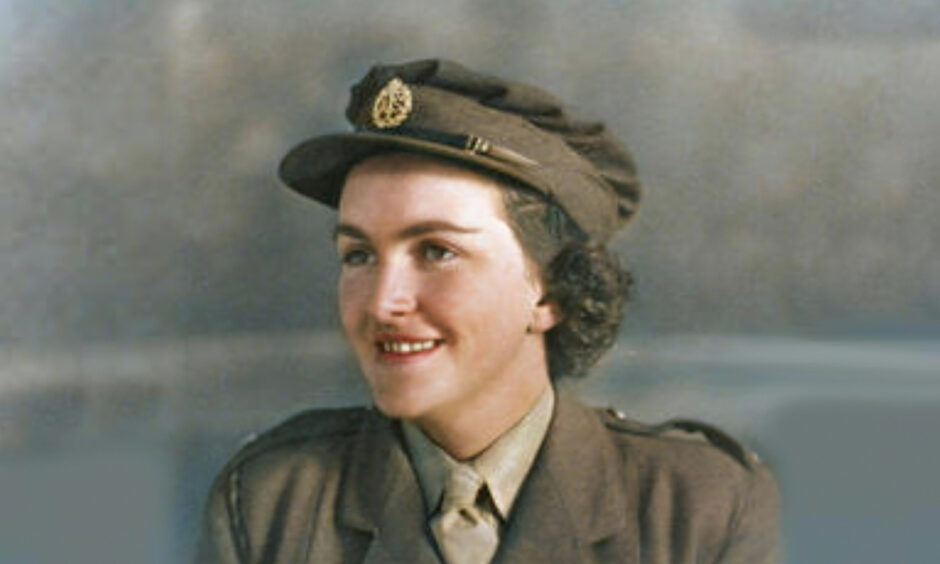
Rena Stewart was the “ordinary Fifer” who worked in a secretive world of encryption and translated Adolf Hitler’s will.
After signing the Official Secrets Act, she spoke very little about her activities.
Rena agreed to reflect on her incredible life with author Victoria Walsh.
In November 2023, before the interviews were completed, Rena passed away.
She was 100.
Victoria took on the responsibility to complete the story and document Rena’s life, in her own words, and in the words of those who knew her best.
The Story of Rena Stewart: Bletchley Park Girl, Translator of Hitler’s Will, and BBC Pioneer is the result and will be published on May 30.
Who was Rena Stewart?
Rena was born in Lundin Links in 1923 to Thomas and Andrewina (Rena) Stewart.
She grew up with older sister Isobel.
Rena had an idyllic childhood “filled with books, music and Scottish dancing”.
She was educated and enjoyed a “successful scholastic career” at Lundin Mill Primary School where her grandfather was a former headmaster.
She went to Buckhaven High School after leaving Lundin Mill.
Rena gained the Dux Medal at both schools.
Victoria said: “She loved reading and poetry, so she decided to study languages.
“She thought that this would give her access to a whole new world.
“It certainly did.
“Off she went to St Andrews University, in the early years of the Second World War.
“On graduating, in 1943, she and her friend Agnes Gardner, from Cellardyke, decided to ‘do something about the war’, so they signed up with the Auxiliary Territorial Service.”
They became firm friends with Dundonian Margery Forbes.
The St Andrews University languages graduates would go on to work at Bletchley Park where Alan Turing’s pioneering Enigma machines were housed.
Working at Bletchley Park
“Rena was community spirited but also had a will of iron,” said Victoria.
“At university, she had joined a cadet unit for women and cleaned up bomb damage.
“Volunteering for war service was the logical next step, and because of her German language skills, she got selected for Bletchley Park.”
The vital codebreaking work was a significant factor in the Allied success.
“Bletchley Park was serious and secret stuff,” said Victoria.
“It was a long way from home, so she didn’t get to go back to Lundin Links on leave.
“However, Rena was the kind of person who just got on with things.”
Rena adapted to the challenge, even if it meant toiling behind closed doors.
“Rena was assigned to a room called the German Book Room with Margery and an ATS girl from Uphall, near Edinburgh, called Elma Morley,” said Victoria.
“There, she worked on secret, decoded messages, essentially making the German readable before they were collated into books for further analysis.
“The messages were mostly uninteresting, but one, from a German Field Marshal, was destined to go straight to Hitler.”
Rena described the message as “absolutely fascinating”.
What happened after Bletchley Park?
Victoria said Rena lived in a spartan army camp at Bletchley Park, which was led by a dictatorial camp commander, Senior Commander Kemp.
“They had a fantastic social life – hitchhiking, Scottish dancing and tennis,” she said.
“They made up poems and songs, including a humorous tribute to SC Kemp.
“It was called Mein Kemp!”
The job came to an abrupt end when the war ended in 1945.
Rena and Margery were transferred to Bad Nenndorf, near Hanover, in Germany.
“Rena and her friends hadn’t been in the army long, so at the end of the war, they were sent to an interrogation centre in Germany,” said Victoria.
“Their role there was to translate the written statements of captured Nazi officers.
“One day, Rena and Margery were given an extra, top-secret task.”
The head of the unit was Major Bill Oughton.
He told them to work together on translating a document.
The message delivered by Major Oughton was direct: “Take as long as you like, but there must be no mistakes, and you must agree on all details”.
Rena said it was obvious it was Hitler’s will.
The discovery of the documents had recently been widely reported.
“Hitler actually wrote two wills: a political and a personal one,” said Victoria.
“He dictated these shortly before he committed suicide in his bunker.
“Rena and Margery translated the personal one, which stated what he wanted to happen to his belongings.
“They didn’t know what happened to their work until 1947, when Rena spotted the translation in the best-selling book The Last Days of Hitler.”
Rena became female BBC trailblazer
The extraordinary task wasn’t even her greatest achievement.
Having risen to the rank of sergeant, Rena left the army in 1947.
She always wanted to work in the media.
“On her return to England, she managed to secure a position as a clerk at the BBC World Service, and she worked her way up from there,” said Victoria.
“She eventually became the first female boss in the World Service newsroom.”
It was a dream job.
Rena declared: “My greatest achievement has been getting people to recognise that a woman can be as good a journalist as a man.
“I’d like to be remembered as a good journalist.”
Rena and Margery remained best buddies.
They were both lifelong friends with Agnes and Elma.
Margery married a Polish soldier and returned to Dundee in 1964.
She named one of her daughters Rena.
Margery took her secret to the grave when she died of cancer in February 1973.
She was 49.
The top-secret work done by the codebreakers was declassified and became public in 1974 when The Ultra Secret by Frederick Winterbotham was published.
It was the first of the books about what had gone on there.
Rena retired from the BBC in 1983.
Writing the biography of Rena Stewart
Victoria said it has been an honour creating a lasting tribute to Rena.
“Rena never got married nor had children,” she said.
“She stayed in England because of friends and work.
“However, she never forgot her roots.
“She still had some family in Fife and she spoke fondly of Lundin Links.
“She also taught Scottish dancing until she was 90.”
Rena was brought home to Lundin Links when she died.
At her request, she was buried in the family burial plot with her parents.
Victoria said: “The secrecy of her war years had a lasting effect.
“She hadn’t talked a lot about her wartime efforts over the years, but when I met her, she had finally become happy to blether about herself.
“When Rena died, I was permitted to look through her possessions.
“Among them I found a photo album, containing an amazing set of photos and other mementos from Rena’s time in Germany, just after the war.
“The album included the cut-out back of a cigarette packet, humorously granting ‘Sgt McHaggis’ (Rena’s alter ego) membership of the Sergeant’s Mess.
“Rena was truly inspiring and her story shows that with a bit of determination and humour, ordinary Fifers can do great things!”
- The Story of Rena Stewart: Bletchley Park Girl, Translator of Hitler’s Will, and BBC Pioneer is available to pre-order.
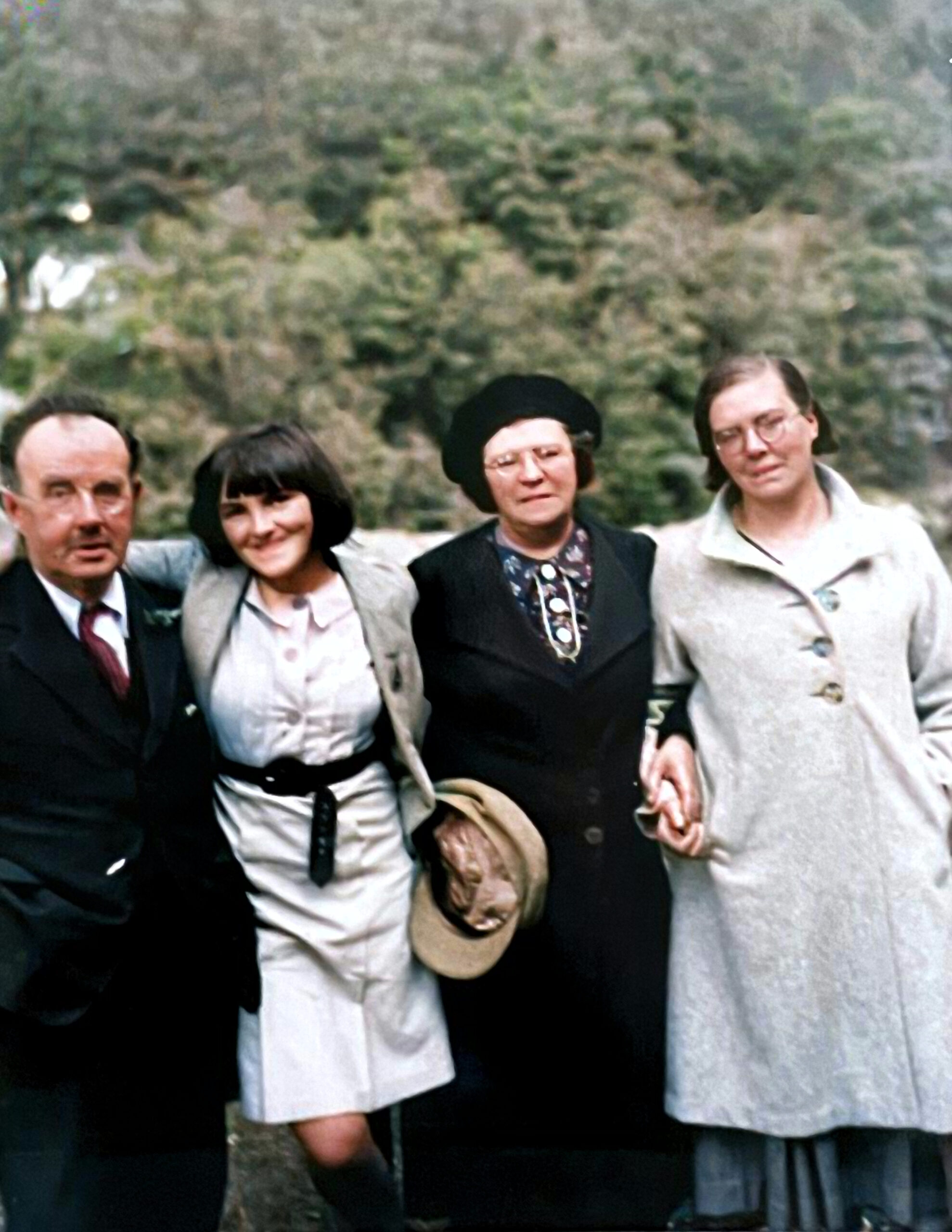
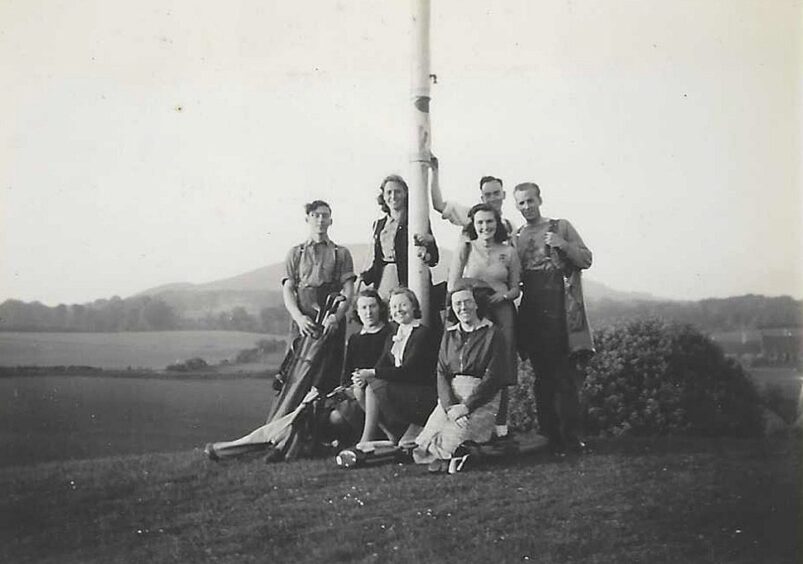
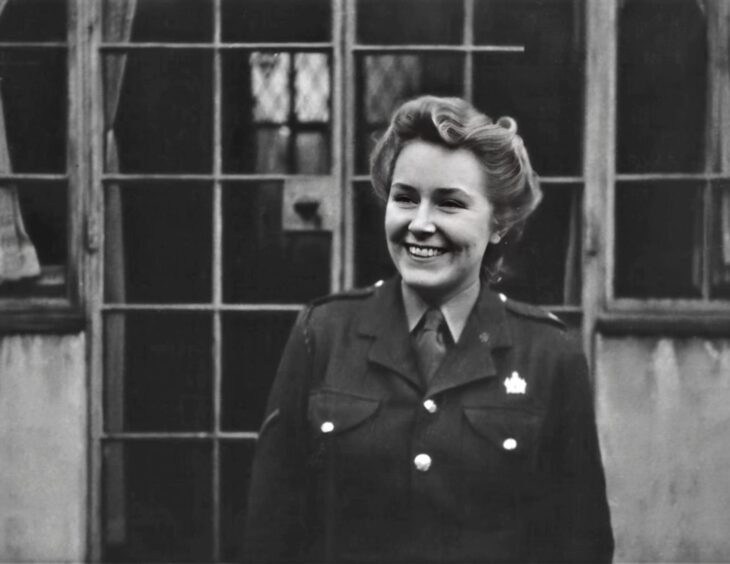
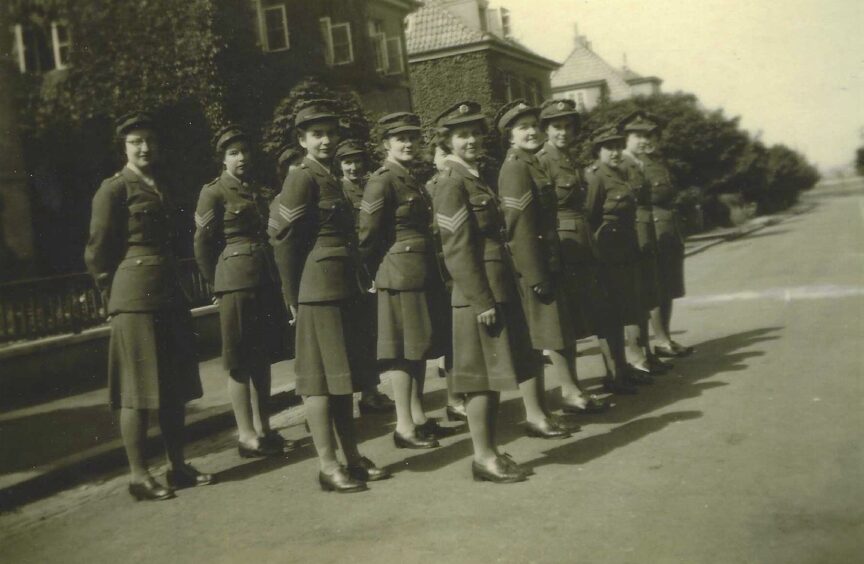
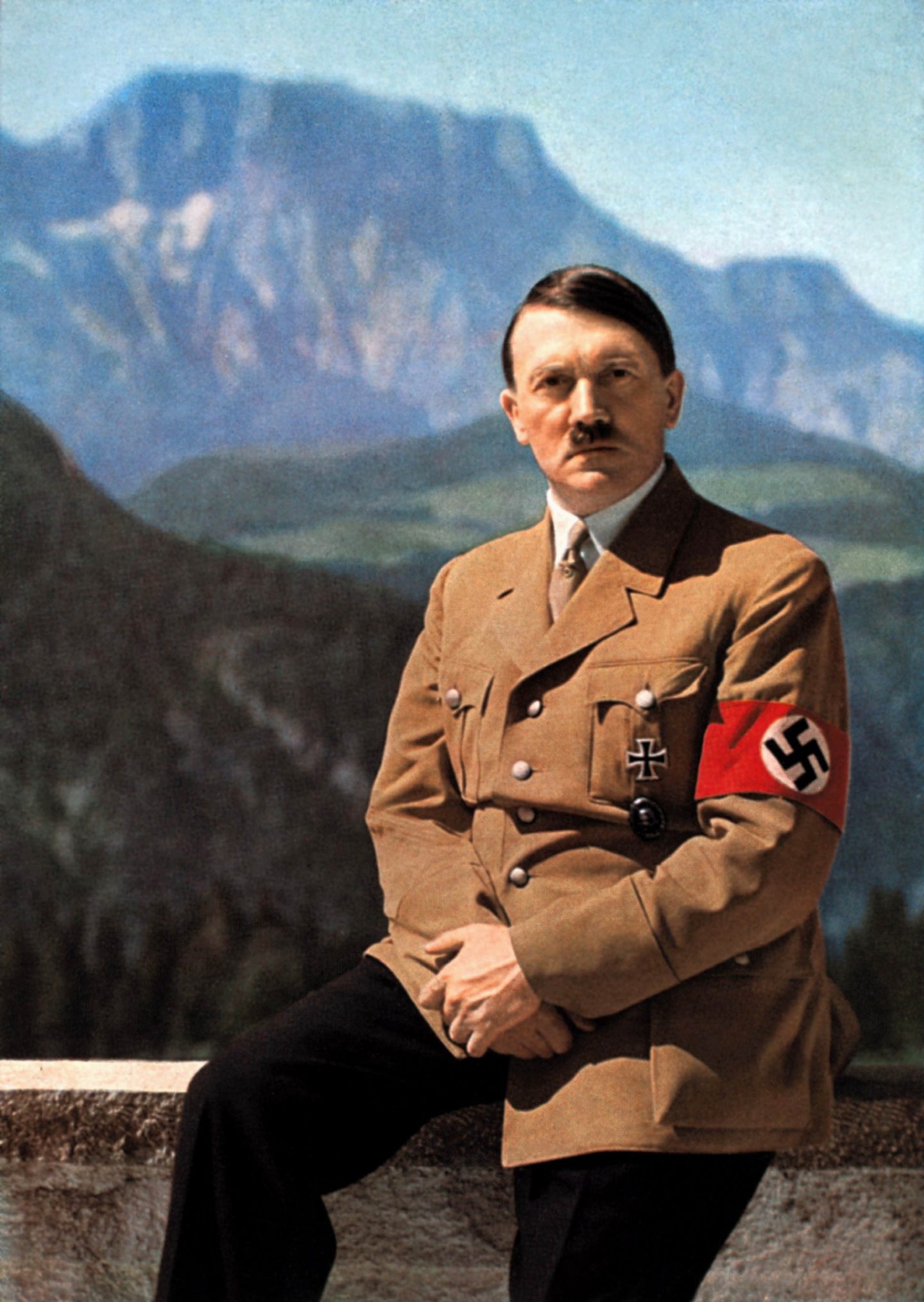
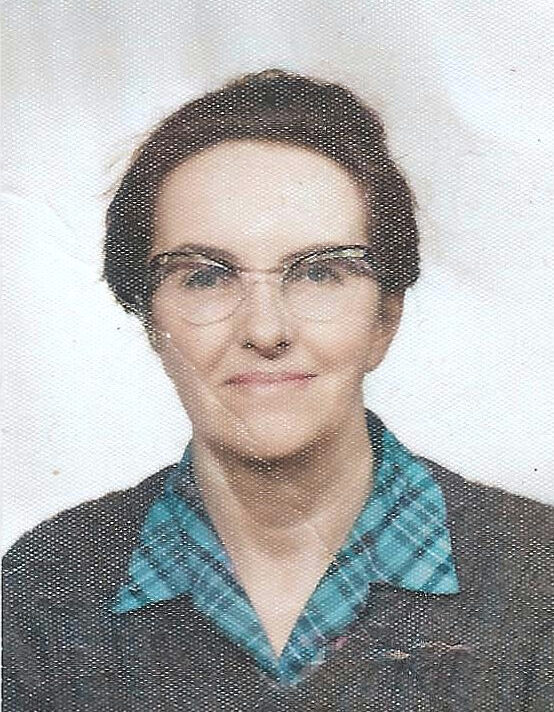

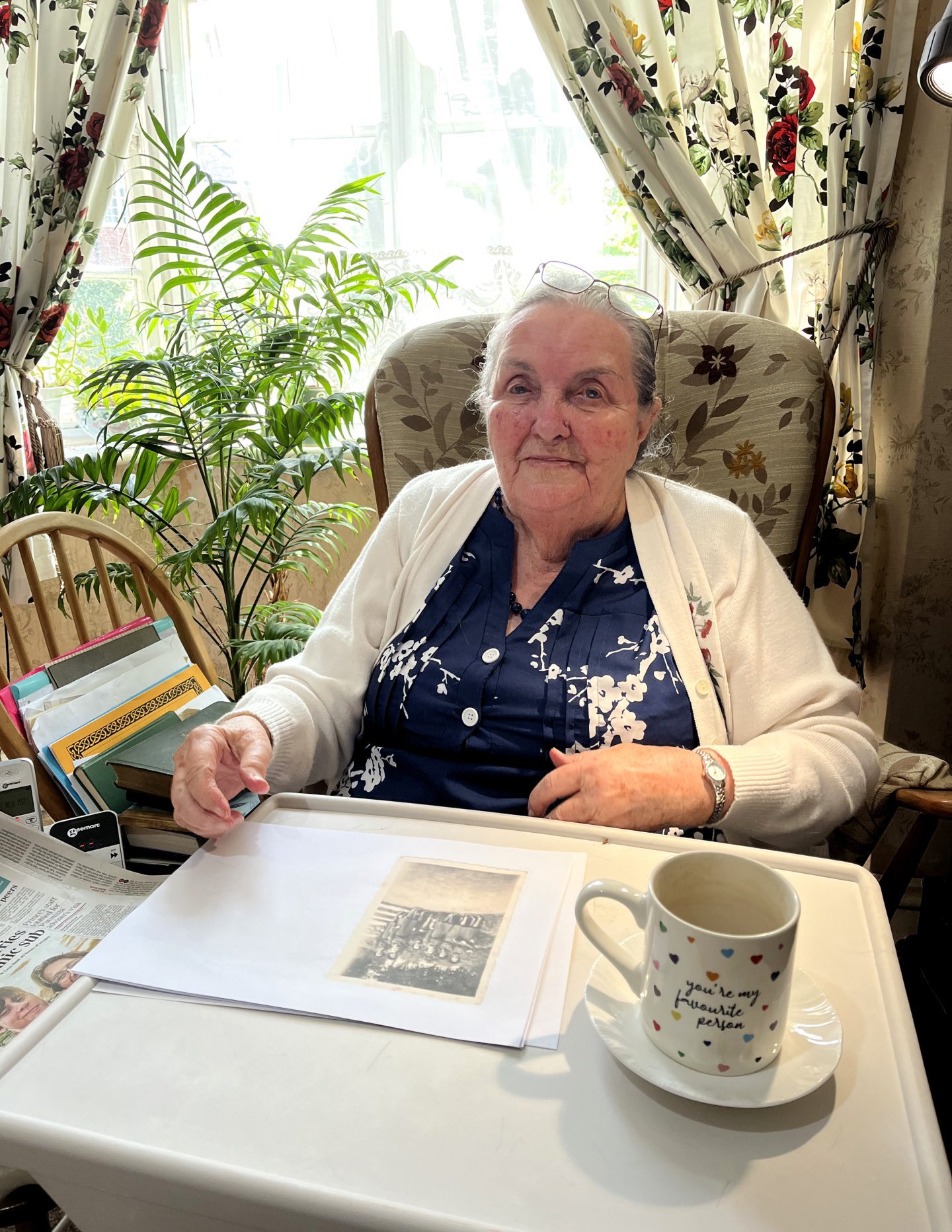

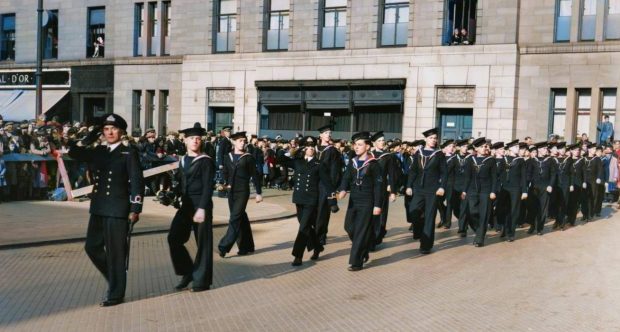



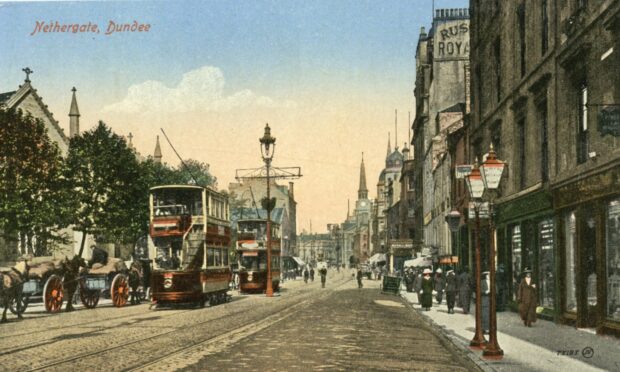




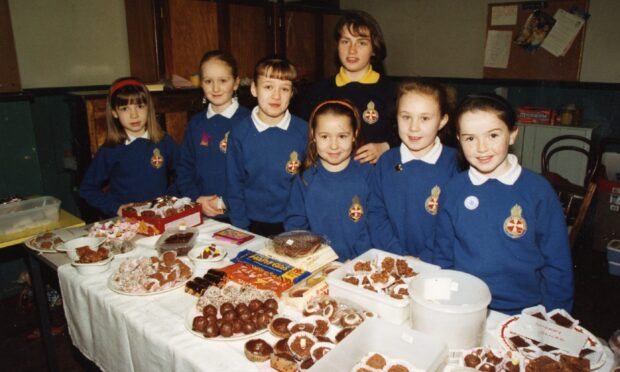
Conversation